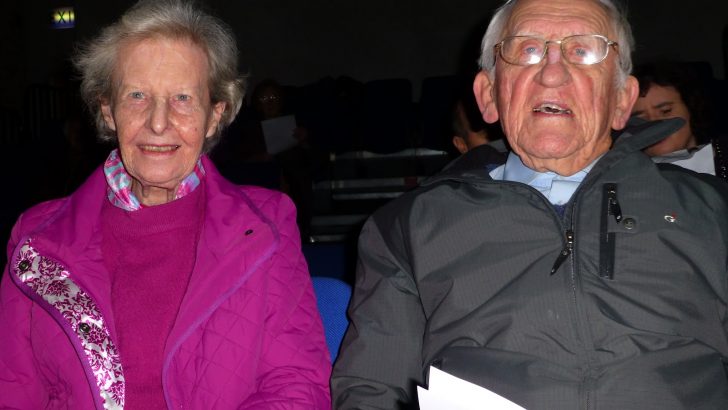Spoilt Rotten: Memoirs of Jack McKenna
by Jack McKenna (North Kerry Literary Trust, €15.00; contact St. Johns Arts & Heritage Centre, The Square, Listowel, Co. Kerry; tel: 068-22566)
This autobiography, by a novice author as old as the century, is a valuable local history written from an urban perspective. For many years the author was in charge of McKenna & Sons, one of the leading businesses in Listowel, Co. Kerry.
Most of the town’s citizens always regarded the McKennas to be essentially business people, but in providing an account of his family background Jack McKenna reveals that his father, Jack McKenna Snr, as he was known, in his early years was involved in much more than the family business.
He was a committed patriot. Sworn into the IRB by Cathal Brugha in 1910, he was OC of the Listowel company of the Irish Volunteers in 1913. He was in Dublin on Easter Monday 1916 when he volunteered his services to Major John McBride, but these were declined
He was jailed on two occasions and harassed by the crown forces during the War of Independence.
From 1917 onwards, he was chairman of Kerry County Council and regarded as one of the leading Sinn Féiners in the county. When the Sinn Féin movement and the IRA split on the issue of the Anglo-Irish Treaty in disgust he retired from politics and from public life.
Jack lists his siblings: Joan, May and Grace, two of whom entered the Congregation of the Ursulines, and his brother Liam.
Traumatic period
He then records a traumatic period in his early years. At the age of ten he struggled with a grave chest ailment. The family GP feared for his life, in this time before penicillin and the wonderful streptomycin drugs. At that time the treatment for any serious chest ailment was a long rest in a sanitorium. Jack was sent to Switzerland, then regarded as the best place to receive treatment. There he made a full recovery.
Jack and Liam were educated by the Jesuits at Clongowes Wood. Both had vocations to the priesthood: Liam was ordained as a Jesuit and spent most of the rest of his life lecturing on industrial relations in the Jesuit Workers College in Dublin.
Jack himself had entered Clonliffe to study for the priesthood in the Archdiocese of Dublin. Within four years he concluded that he did not have a vocation, and joined his father in the family business.
In the next and most valuable section of Jack’s narrative he discusses the development of the family business and its crucial role in the business and commercial life of the town and its vicinity. The challenges to business in a provincial town were many and varied and this book illustrates adaptability was the key to coping with them. Jack married Susan Kelliher, daughter of Maurice Kelliher, one of the leading businessmen in Tralee and she was a knowledgeable and admirable partner in all his business enterprises.
Family business
Jack did not merely concern himself with the family business. He was actively involved in projects to promote the civic, economic and social life of the town. He and other prominent fellow town’s people bought the Listowel Arms Hotel when it was very much down-at-heal and they ensured that it was again fit for purpose.
Largely the same group set up the Tarbert-Killimer Ferry. Jack also strongly supported every other worthwhile project, not least Writers Week. In all this he had the enthusiastic support of Sue, his wife.
One of Jack’s hobbies was an interest in trains and railways. The remains of one of the most exotic examples of a railway was right before his eyes – The Listowel /Ballybunion Lartigue Railway. With dogged determination he resurrected the engine, carriages, turn-table and rails and he bequeathed to the town the unique Lartigue Railway Museum.
Jack McKenna’s journal of his life and times is an inspiring account of a hard-working and public-spirited business family, such as was to be found in all our provincial towns. Congratulations to him for completing it and on reaching his 100th birthday!


 Jack and Sue McKenna
Jack and Sue McKenna 